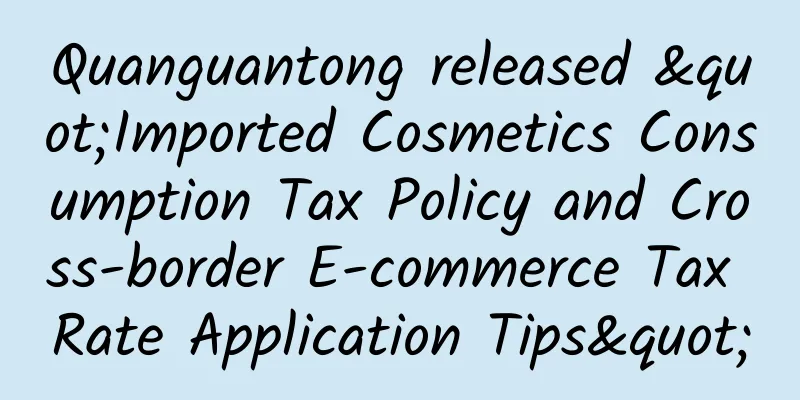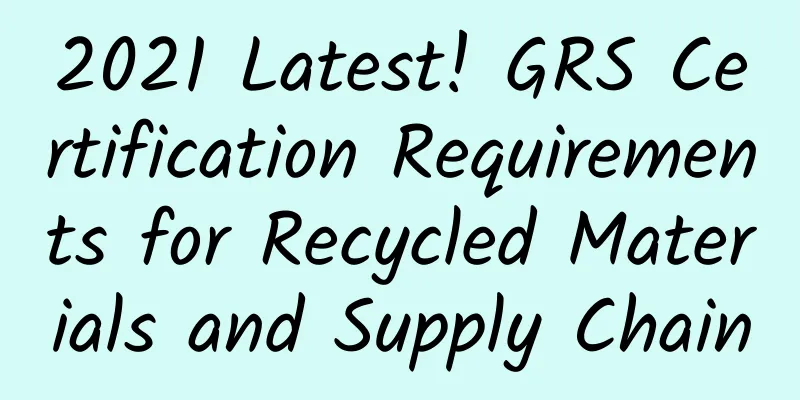|
Apple Factory Audit Code of Conduct Labor and Human Rights Suppliers must uphold the human rights of their employees and allow them to have dignity and respect in a manner recognized by the international community.
Anti-discrimination During the recruitment and employment process, suppliers shall not discriminate against employees based on race, color, age, gender, sexual orientation, ethnicity, disability, religious belief, political affiliation, union membership, nationality or marital status in job search, promotion, rewards, training opportunities, work arrangements, wages, benefits, penalties and termination of employment contracts. Unless required by relevant laws and regulations or for workplace safety considerations, suppliers cannot require women to take pregnancy tests or discriminate against pregnant employees, unless local laws and regulations have requirements for pregnant employees. In addition, suppliers cannot require employees or prospective employees to undergo discriminatory physical examination tests, unless required by relevant laws and regulations or for workplace safety considerations.
Treating suppliers equally requires a commitment to ensuring a harassment-free workplace. Suppliers must not coerce employees or subject them to harsh, inhumane treatment, including sexual harassment, abuse, corporal punishment, mental coercion, physical coercion, verbal abuse, or unreasonable restrictions on access to company-provided facilities. Suppliers should prohibit workplace harassment and illegal discrimination.
Prevention of Involuntary Labor Suppliers shall not use any form of forced, bonded, indentured or prison labor. All work must be voluntary and workers may leave their jobs or terminate their employment upon request. Workers shall not be required to submit any government-issued documents, such as identification cards, passports, work permits, etc. prior to employment. Suppliers shall ensure that third-party labor agencies that provide them with labor comply with this Code and the laws of the labor-sending and labor-receiving countries, whichever is the most stringent in protecting workers. Suppliers must ensure that contracts for direct and indentured workers are in a language that the workers understand and clearly state the terms of employment. When workers are required to pay compensation in exchange for employment, the supplier is responsible for the compensation and expenses that exceed the worker's estimated net income for one month. These compensation and expenses include, but are not limited to, costs associated with the recruitment, deployment and placement of direct and indentured workers.
Prevention of Underage Labor Child labor is strictly prohibited. Suppliers shall not employ children. The minimum employment or working age shall be 15 years, or the minimum age for employment or work prescribed by the country of employment, or the age for completing compulsory education in the country of employment, whichever is higher. This Code does not prohibit Suppliers from implementing legal workplace apprenticeship programs consistent with Article 6 of ILO Convention No. 138, or light work consistent with Article 7 of ILO Convention No. 138.
Youth protection providers may employ young people who are older than the legal minimum age and younger than 18 years of age, provided that they are not required to perform work that is likely to jeopardize their health, safety or morals, in accordance with the requirements of ILO Convention No. 138 on Minimum Age for Employment.
Working hours should be controlled within 60 hours per week, including overtime, except in emergency or special circumstances. Employees should be allowed at least one day off every seven days, and all overtime must be voluntary. In any case, the weekly working hours cannot exceed the upper limit stipulated by relevant laws and regulations.
Wages and Benefits Suppliers shall pay their employees at least the minimum wage required by local laws and regulations and provide statutory benefits. In addition to paying compensation for their normal working hours, suppliers shall also compensate employees for overtime in accordance with the proportion required by relevant laws and regulations. Suppliers shall not deduct employees' wages for disciplinary purposes. Suppliers must provide statutory holiday leave time and vacation rights as required by relevant laws and regulations. Wages must be paid on time, and wage payment details must be communicated to employees in a timely and clear manner.
Suppliers must respect employees' rights to freedom of association, to freely form and join employee organizations, to seek representation, and to collective bargaining as permitted by local laws and regulations. Suppliers must not discriminate against employees on the basis of union membership, especially when recruiting, requiring employees to give up their union membership or agree not to join a union, or otherwise dismiss or discriminate against employees for union reasons or require union members to participate in union activities outside of work hours (or during work hours, if the supplier agrees to union activities or local laws and regulations require union activities to be conducted during work hours). Suppliers must protect the establishment, functioning, and management of employee organizations from interference by any behavior in accordance with relevant laws and regulations.
Health and Safety Apple believes that integrating sound health and safety management practices into all areas of business activities is essential to maintaining high morale and producing innovative products. Suppliers must be committed to creating safe working conditions and a healthy work environment for all of their employees.
Occupational Injury Prevention Suppliers shall eliminate the risk of physical injury that may exist. For physical injury risks that cannot be eliminated, suppliers must provide appropriate engineering control equipment such as protective shields, interlocks and guardrails. If appropriate engineering control equipment cannot be provided, suppliers must establish appropriate management control methods, such as safe work procedures. Suppliers must provide employees with appropriate personal labor protection equipment. Employees who raise safety concerns shall not be punished, and employees have the right to refuse unsafe working conditions without fear of retaliation until management fully addresses their concerns.
Suppliers shall identify, evaluate and control hazardous chemical, biological and physical agents in the environment where employees are exposed. Suppliers shall eliminate chemical hazards whenever possible. When chemical hazards cannot be eliminated, suppliers shall provide appropriate engineering controls, such as closed systems and adequate ventilation. If appropriate engineering controls are not feasible, suppliers shall establish appropriate management controls, such as safe work procedures. Suppliers shall provide employees with appropriate personal protective equipment.
Emergency Prevention, Preparedness and Response Suppliers should anticipate, identify and assess the risks of emergencies and incidents, and reduce their impact by implementing emergency plans and response procedures, including emergency reporting, employee incident notification and evacuation plans, employee training and fire drills, appropriate first aid supplies, appropriate fire detectors and fire extinguishing equipment, sufficient exits for employee evacuation and recovery plans, etc. Suppliers must integrate the C-TPAT security standards on the U.S. Customs website www.cbp.gov. into their business activities.
Suppliers shall establish procedures and systems for the management, tracking and reporting of occupational injuries and illnesses. These procedures and systems shall encourage employees to report incidents, classify and record injuries and occupational illnesses, investigate the causes of cases and implement improvement plans to eliminate the root causes, and provide necessary medical treatment to assist employees in returning to work.
Ergonomics Suppliers should identify, evaluate and regulate workers exposed to physically demanding tasks such as manual handling of materials, heavy lifting, prolonged standing, frequent repetitive motions or high-intensity assembly tasks.
Dormitory and canteen suppliers should provide workers with clean toilets, potable water, and sanitary food preparation and storage facilities. Dormitories provided by suppliers or third-party organizations for workers must be clean and safe, provide adequate emergency exits, adequate ventilation and heating, reasonable per capita living area, and entrance and exit access.
Communication on Health and Safety In order to establish a safe working environment, suppliers should provide employees with appropriate information and training on health and safety in the workplace, including written health and safety information and warnings in the employees' native language and Material Safety Data Sheets for any substances that may be toxic to the body in the workplace. Suppliers should also provide appropriate training to employees who may be exposed to these toxic substances in the workplace.
Employee Health and Safety Committee Suppliers should initiate and support employee health and safety committees to strengthen ongoing health and safety education and should encourage on-site employees to raise suggestions on health and safety issues.
Environmental Impact At Apple, environmental protection is an integral part of our business activities. Suppliers should be committed to reducing the environmental impact of product design, production, and waste discharge.
Suppliers must comply with the latest version of Apple's Controlled Substances Specification 069-0135 and relevant laws and regulations regarding the prohibition and restriction of certain substances. To ensure the safe handling, handling, storage, recycling, reuse and disposal of hazardous substances, suppliers should identify and control substances that may cause harm once they enter the environment, and must also comply with relevant labeling laws and regulations for recycling and disposal.
Solid waste management Suppliers shall manage and dispose of non-life-threatening solid waste generated during their production processes in accordance with the requirements of relevant laws and regulations.
Wastewater and Stormwater Management Suppliers shall monitor, control and treat wastewater generated from their production processes before discharge in accordance with relevant laws and regulations. Suppliers must take appropriate precautions to prevent contaminated stormwater from flowing out of their factories.
Waste gas emission management Suppliers shall, in accordance with the requirements of relevant laws and regulations, distinguish, monitor and treat waste gases such as volatile organic chemicals, smoke, corrosive substances, particles, chemicals that deplete the ozone layer and flammable by-products generated in their production processes before they are discharged.
Environmental Permits and Reporting Suppliers must obtain, maintain and keep current all required environmental permits and approvals (e.g., emissions monitoring) and must operate and report in accordance with the requirements of those permit registrations.
Pollution Prevention and Energy Conservation Suppliers must strive to reduce or eliminate solid waste, wastewater and waste air, including energy-related indirect waste, by implementing appropriate energy-saving measures in production, maintenance and processes, and by recycling, reusing or replacing materials.
Suppliers must commit to the highest standards of ethical behavior in their dealings with employees, suppliers and customers.
Business Integrity prohibits any form of corruption, extortion or embezzlement. Suppliers must not violate the Foreign Corrupt Practices Act (FCPA), any international anti-corruption conventions, or the relevant anti-corruption laws and regulations of the countries where they operate. Suppliers must not engage in any form of corruption, extortion or embezzlement. Suppliers must not bribe or receive bribes or gain improper or illegal benefits through other means.
Advertising, sales and competition should all maintain fair business principles.
Information Disclosure Suppliers must comply with relevant laws and regulations and prevailing industry practices, and accurately record and disclose information such as their business activities, organizational structure, economic conditions, and operational performance.
Whistleblower Protection and Anonymous Complaints All suppliers must implement a program to protect the confidentiality of supplier and whistleblower information to prevent retaliation against honest employees who participate in the program or refuse to accept orders that are inconsistent with the Apple Supplier Code of Conduct. Suppliers must provide employees with an anonymous complaint channel in accordance with local laws and regulations so that employees can report grievances they have suffered in the workplace.
Suppliers should participate in community activities, promote the social and economic development of the community, and contribute to the sustainable development of the community where the supplier is located.
Intellectual Property Protection Suppliers must respect intellectual property rights; customer information must be protected; the transfer of technology and technical know-how must be carried out in a manner that protects intellectual property rights.
Management Commitment Suppliers must adopt or establish a management system to ensure compliance with this Code and relevant laws and regulations, identify and mitigate relevant operational risks, and implement continuous improvement in the factory. ISO14001, Occupational Health and Safety Management OHSAS18001, Ecological Management and Audit Scheme (EMAS) may be important resources. Management commitment should include the following elements:
Company Statement A corporate social and environmental responsibility statement confirming the supplier's commitment to compliance and continual improvement is posted in the local language at all supplier locations.
Management Responsibilities Clearly identify company representatives responsible for ensuring the implementation of the supplier's management system and for regularly reviewing its status.
Risk Assessment and Management There must be a process to identify the risks of environmental, health and safety, business ethics, labor, human rights and legal non-compliance related to their production, determine the relative significance of various risks, and implement appropriate methods to ensure compliance and the necessary controls for the identified risks. Health and safety risk assessments must include warehouses and storage facilities, plant and equipment support equipment, laboratories and testing areas, toilets, kitchens, cafeterias and employee housing.
Implementation objectives of programs and measures Regularly evaluate written standards, implementation goals, objectives, and implementation plans, including supplier performance against these objectives.
Monitoring and Evaluation Conduct regular self-evaluations to ensure that suppliers, subcontractors and sub-suppliers comply with this Code and relevant laws and regulations.
Documents and Records Suppliers shall have methods to identify, monitor and understand applicable laws and regulations and the additional requirements imposed by this Code. Suppliers shall obtain, maintain and maintain a valid business license as required by applicable laws and regulations.
Documents and records must be established to ensure compliance monitoring and adherence to the requirements of this Code and appropriate confidentiality measures must be in place to protect their privacy. Training and Communication To implement the supplier's policies and procedures, training plans for managers and employees should be developed separately to achieve the supplier's improvement goals.
There should be a clear and unambiguous communication process with employees, suppliers and customers regarding their performance, practices and expectations.
Employee Feedback and Participation There should be an ongoing process for obtaining feedback on all procedures and practices related to this Code to encourage continuous improvement.
Improvement Process A process that enables timely correction of any deficiencies identified during any internal or external monitoring, evaluation, inspection, investigation or review. |










